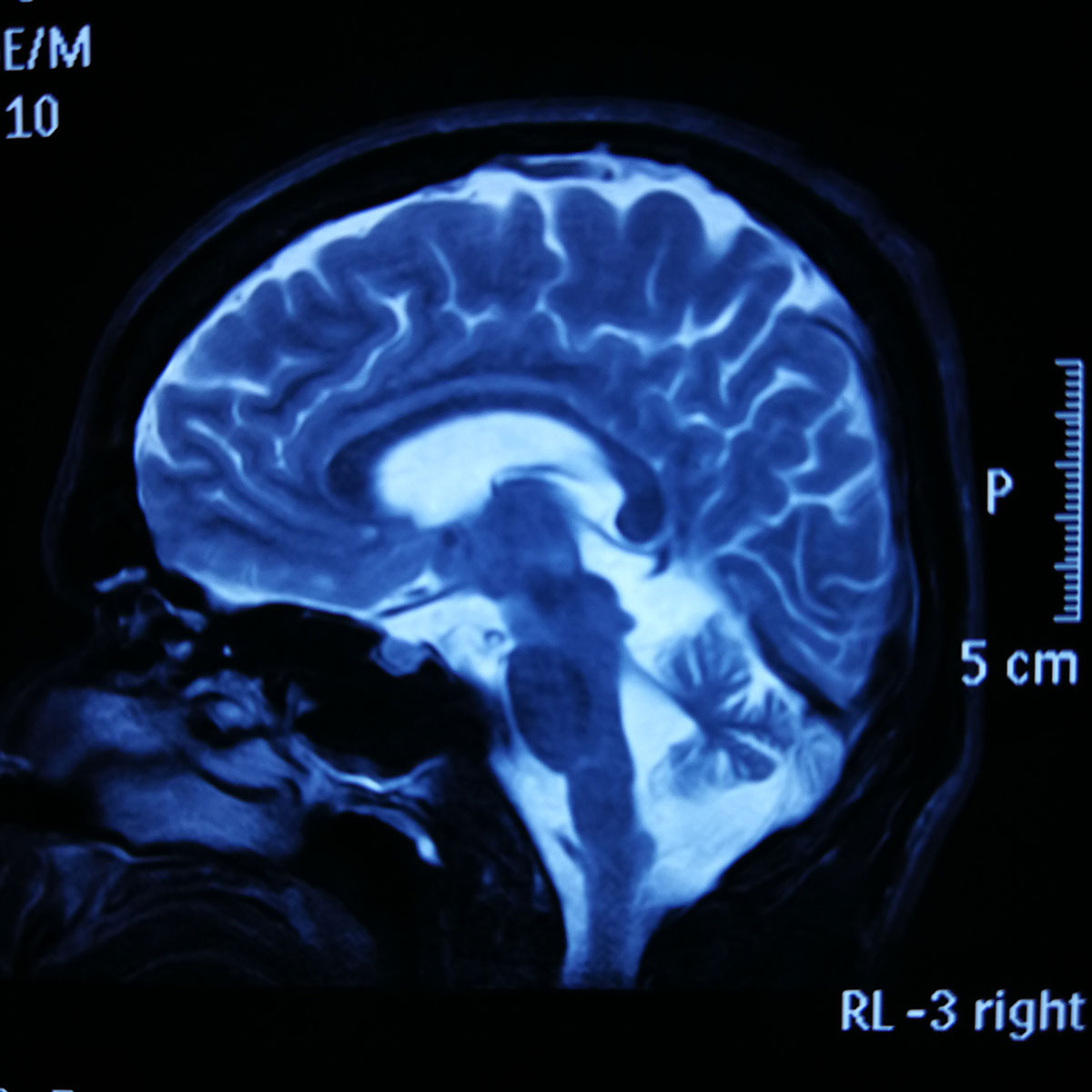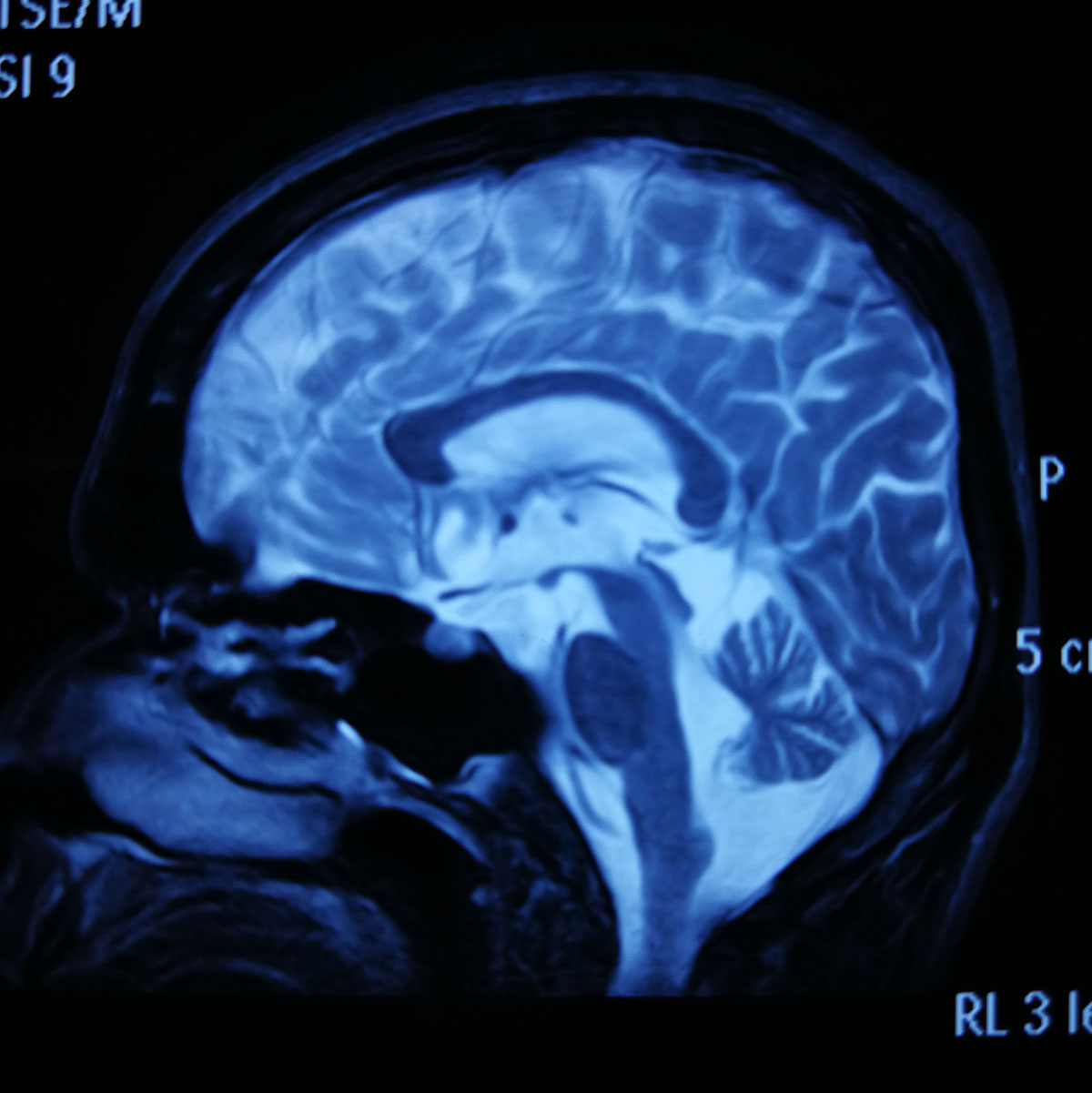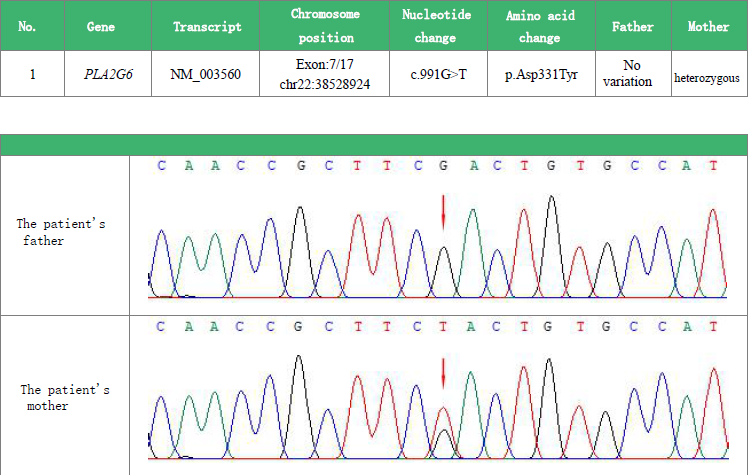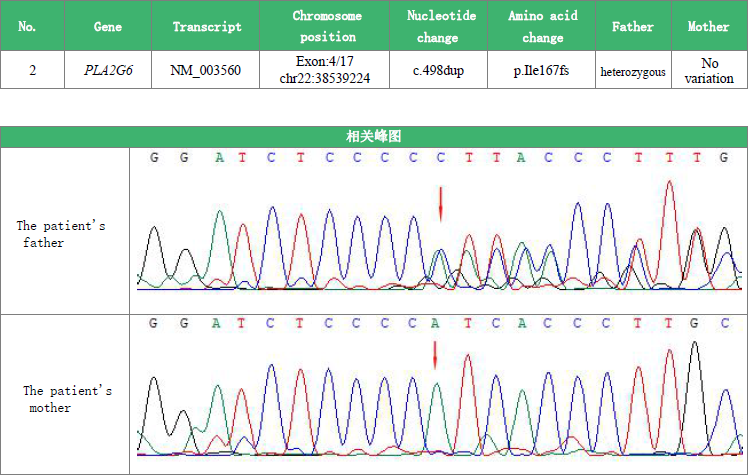Session Information
Date: Monday, September 23, 2019
Session Title: Genetics
Session Time: 1:45pm-3:15pm
Location: Les Muses Terrace, Level 3
Objective: To investigate the clinical features of Parkinson’s disease caused by PLA2G6 gene mutation.
Background: Early-onset Parkinsonism is a group of syndromes characterized by Parkinson’s disease with an early onset age, usually less than 50 years old. Most early-onset parkinsonism are sporadic and only a few are recessive, while the parkinsonism caused by mutation of PLA2G6 gene is more rare and has high genetic and clinical heterogeneity with different mutation sites and types.
Method: Clinical data of 1 patient with PLA2G6-related parkinsonism were retrospectively analyzed.
Results: The patient was male, with the onset age of 37 years old. The main clinical manifestations were difficulty in walking in the right lower limb, spasmic gait accompanied by bradykinesia, mild dysarthria, and mild exophthalmos. Physical examination showed strong positive bilateral knee reflex and positive bilateral babinski sign. Magnetic resonance imaging of the brain indicates cerebellar atrophy (Figure 1 and Figure 2). Targeted capture – high throughput sequencing revealed two heterozygous mutations in the exon region of PLA2G6 gene: c.991G > T(p.apsp331tyr), c.498dup (p.I1e167fs). The results of Sanger sequencing showed that the two mutations were derived from the mother and the father, and they were all complex heterozygous mutations (Figure 3 and Figure 4). c.991G > T site has been reported as a pathogenic mutation, while c.498dup (p.I1e167fs) has been reported for the first time and has not been detected in the normal population, which may be a new pathogenic mutation.
Conclusion: Parkinson’s disease induced by PLA2G6 gene mutation is clinically rare, which is likely to be misdiagnosed as spinocerebellar ataxia. Genetic testing for differential diagnosis is the first choice.
To cite this abstract in AMA style:
L. Kou, T. Wang, L. Liu, GX. Zhang. The PLA2G6 Gene Mutation Causes Parkinson’s Disease: A Case Report [abstract]. Mov Disord. 2019; 34 (suppl 2). https://www.mdsabstracts.org/abstract/the-pla2g6-gene-mutation-causes-parkinsons-disease-a-case-report/. Accessed February 19, 2026.« Back to 2019 International Congress
MDS Abstracts - https://www.mdsabstracts.org/abstract/the-pla2g6-gene-mutation-causes-parkinsons-disease-a-case-report/




